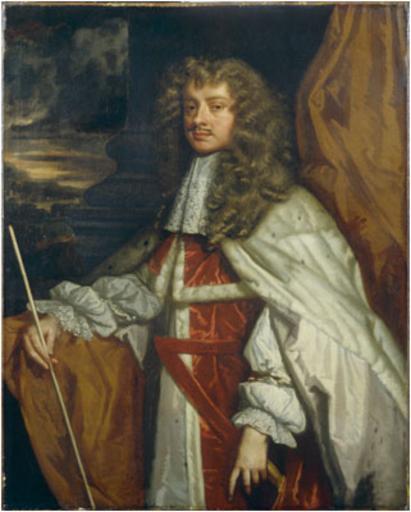MAKE A MEME
View Large Image

| View Original: | Thomas_Clifford,_1st_Baron_Clifford_of_Chudleigh.jpg (321x400) | |||
| Download: | Original | Medium | Small | Thumb |
| Courtesy of: | www.flickr.com | More Like This | ||
| Keywords: Thomas Clifford, 1st Baron Clifford of Chudleigh (1 August 1630 - 17 October 1673), English statesman and politician, was created the first Baron Clifford of Chudleigh on 22 April 1672 for his suggestion that the King supply himself with money by stopping, for one year, all payments out of the Exchequer. He was born in Ugbrooke, the son of Hugh Clifford of Chudleigh, Devon, and his wife Mary, daughter of Sir George Chudleigh, Bt. He was baptised 4 August 1630 at Ugbrooke, and matriculated at Exeter College (Oxford), receiving his B.A. there in 1650. He became a barrister of the Middle Temple and an MP for Totnes in 1660-1672. He distinguished himself in naval battles, and was knighted. He became Comptroller of the Household in 1666 and a member of the Privy Council. At the end of the Dutch war in 1669 he intrigued against the peace treaty, preferring the French interests. He was one of the five Counsellors who formed the Cabal, though he was probably the least important of them. He was Lord High Treasurer from 28 November 1672 to June 1673, when, as a Roman Catholic, he found himself unable to comply with the Test Act and resigned. He died by his own hand (perhaps "strangled with his cravatt upon the bed-tester") a few months after his retirement. Thomas Clifford, 1st Baron Clifford of Chudleigh (1 August 1630 - 17 October 1673), English statesman and politician, was created the first Baron Clifford of Chudleigh on 22 April 1672 for his suggestion that the King supply himself with money by stopping, for one year, all payments out of the Exchequer. He was born in Ugbrooke, the son of Hugh Clifford of Chudleigh, Devon, and his wife Mary, daughter of Sir George Chudleigh, Bt. He was baptised 4 August 1630 at Ugbrooke, and matriculated at Exeter College (Oxford), receiving his B.A. there in 1650. He became a barrister of the Middle Temple and an MP for Totnes in 1660-1672. He distinguished himself in naval battles, and was knighted. He became Comptroller of the Household in 1666 and a member of the Privy Council. At the end of the Dutch war in 1669 he intrigued against the peace treaty, preferring the French interests. He was one of the five Counsellors who formed the Cabal, though he was probably the least important of them. He was Lord High Treasurer from 28 November 1672 to June 1673, when, as a Roman Catholic, he found himself unable to comply with the Test Act and resigned. He died by his own hand (perhaps "strangled with his cravatt upon the bed-tester") a few months after his retirement. | ||||